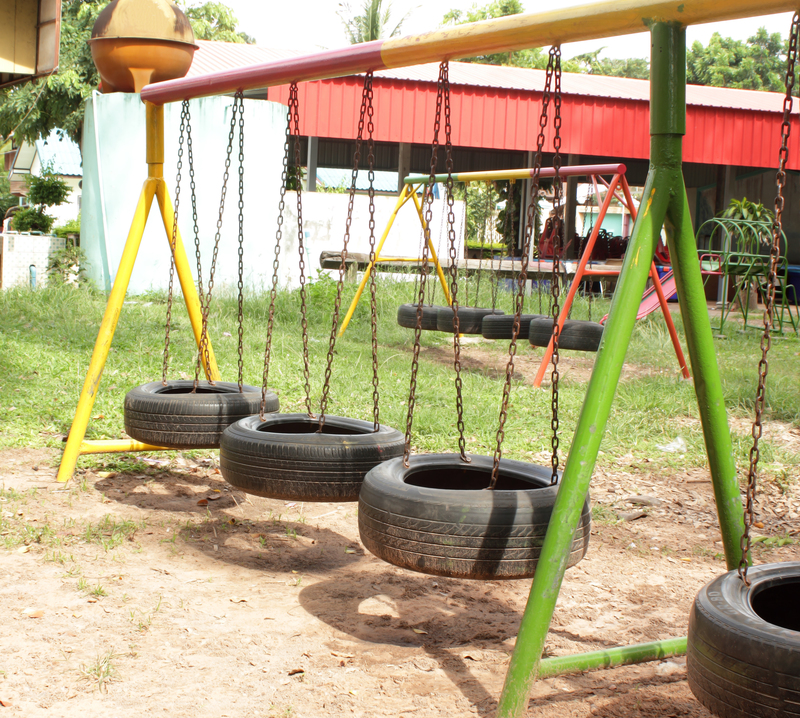Pioneering a New Way of Living with Home Waste Prevention
Rethinking our relationship with waste is fundamental to envisioning a more sustainable future. Home waste prevention lies at the heart of this transformation, offering individuals and families opportunities to lead greener, more responsible lives. In this guide, we explore innovative strategies, practical tips, and the benefits of adopting home waste reduction methods--paving the way for a pioneering new lifestyle.
Understanding the Importance of Home Waste Prevention
Home waste prevention is more than just managing garbage; it's about proactively reducing, reusing, and eliminating waste before it is even created. This concept not only minimizes our environmental footprint but also fosters mindful consumption and resource conservation. By adopting domestic waste prevention practices, households can contribute significantly to global sustainability goals while saving money and improving their quality of life.
Key Benefits of Household Waste Minimization
- Environmental Protection: Reduces landfill usage, greenhouse gas emissions, and pollution associated with waste handling.
- Resource Conservation: Saves raw materials, water, and energy, ensuring resources for future generations.
- Financial Savings: Reduces costs associated with excessive consumption and waste disposal.
- Community Engagement: Inspires neighborhoods to collaborate on sustainable initiatives, strengthening social ties.
- Health Improvements: Creates cleaner living spaces by minimizing clutter and exposure to waste-related toxins.

Identifying and Tackling Different Types of Home Waste
Before embarking on innovative waste prevention strategies, it's helpful to identify the various forms of waste generated at home:
- Food Waste: Leftovers, spoiled produce, and packaging
- Plastic Waste: Single-use bags, bottles, and containers
- Paper Waste: Newspapers, mail, packaging, and towels
- Textile Waste: Old clothing and linens
- Electronic and Hazardous Waste: Batteries, appliances, chemicals
- General Household Waste: Unnecessary purchases, broken items, obsolete products
Effective waste prevention at home requires targeted strategies for each category and a shift in daily habits.
1. Food Waste Prevention Strategies
Food is one of the largest contributors to household waste. _Pioneering a new way of living_ means being conscientious about our food habits. Here's how:
- Meal Planning: Craft weekly menus to use ingredients efficiently, reducing over-purchasing and spoilage.
- Smart Shopping: Stick to grocery lists and avoid impulse buys. Opt for loose, package-free produce when possible.
- Proper Storage: Understand the best ways to store fruits, vegetables, and leftovers for lasting freshness.
- Creative Cooking: Repurpose leftovers into new meals and utilize overripe produce in smoothies or baked goods.
- Home Composting: Turn unavoidable scraps into nutrient-rich soil for gardening.
2. Reducing Plastic Waste at Home
Single-use plastics pose severe ecological risks. Take bold action by integrating these plastic waste reduction tips:
- Reusable Alternatives: Carry cloth bags, use glass jars, and implement refillable water bottles.
- Buy in Bulk: Purchase pantry staples from bulk bins to minimize packaging.
- Plastic-Free Swaps: Switch to bar soaps, bamboo toothbrushes, and metal utensils.
- Diligent Recycling: Clean and sort plastics according to local guidelines, but prioritize refusing and reducing first.
3. Minimizing Paper Waste and Embracing Digital Options
- Go Paperless: Sign up for online bills, magazines, and statements.
- Reusable Cloths: Replace paper towels with washable rags or microfiber alternatives.
- Efficient Printing: Print on both sides, use digital notes, and unsubscribe from junk mail.
- Recycling and Upcycling: Separate and recycle clean paper products. Repurpose newspapers for cleaning, crafts, or packing material.
4. Reducing Textile Waste Through Mindful Fashion
Textile waste is surging worldwide. Home waste prevention in the wardrobe can be accomplished by:
- Quality Over Quantity: Invest in durable clothing that withstands trends and frequent use.
- Repair and Reuse: Patch, sew, or transform worn clothes into rags or crafts.
- Responsible Disposing: Donate or sell usable garments, and recycle unusable textiles at proper facilities.
- Smart Shopping: Choose brands with sustainable practices and transparent supply chains.
5. Handling Electronics and Hazardous Household Waste
Electronics and chemicals need specialized waste prevention approaches:
- Maintain and Repair: Extend the life of gadgets through repairs, updates, and protective cases.
- Shared Use: Borrow or rent infrequently used equipment instead of buying new.
- E-Waste Recycling: Drop off old electronics at designated recycling centers or return to retailers.
- Safe Disposal: Follow local guidelines for batteries, cleaning agents, and paints. Reduce purchases of hazardous materials.
Adopting a Zero Waste Mindset at Home
Zero waste living is a pioneering movement that reimagines homes as hubs of resourcefulness. The principle prioritizes reducing waste at its source--through intentional choices and long-term changes in behavior. Below are actionable steps for embracing a zero waste lifestyle:
Five R's of Zero Waste
- Refuse: Say no to free samples, disposable cutlery, and single-use items.
- Reduce: Minimize purchases by prioritizing quality, multipurpose goods, and borrowing.
- Reuse: Opt for reusable or repurposed items whenever possible.
- Recycle: If you must discard, recycle correctly and support products made from recycled materials.
- Rot: Compost organic waste, returning nutrients to the earth.
Establishing Sustainable Home Systems
- Organize Storage: Designate areas for different trash types, recyclables, and donations.
- Set Family Rules: Involve all household members in sorting, composting, and reducing waste.
- Track Progress: Keep a waste log or take regular waste audits to pinpoint improvement areas.
- Educate Yourself: Stay informed about recycling updates and local sustainability events.
- Join Local Initiatives: Participate in community composting, repair cafes, or tool libraries.
Technological Innovations in Home Waste Prevention
Technology is rapidly transforming how we approach home waste prevention. Some modern advancements that help households reduce waste include:
- Smart Appliances: Refrigerators with inventory tracking minimize food waste by keeping users informed about expiry dates.
- Composters: In-home composting devices speed up decomposition and eliminate odors.
- Digital Meal Planners: Apps generate shopping lists based on what's in your pantry, preventing overbuying.
- Recycling Apps: Software that educates users on proper recycling protocols, reducing contamination.
Embracing such innovations equips families with powerful tools to lead sustainable lifestyles effectively.
Pioneering Waste-Free Events and Celebrations at Home
Special occasions often generate excessive waste, but with careful planning, you can host sustainable gatherings that are fun and eco-friendly:
- Use Reusable Dinnerware: Swap disposables for regular plates, cups, and cutlery.
- Decorate with Reusables: Choose cloth tablecloths, bunting, and string lights.
- Plan Portion Sizes Carefully: Limit food waste by calculating servings accurately.
- Eco-Gifts: Encourage sustainable gift-giving such as experiences or plant-based presents.
- Sort Waste: Label bins for recyclables, compost, and landfill to guide guests.
The Role of Education and Community Support in Waste Prevention
Building awareness is essential for the success of any pioneering domestic waste prevention movement. Here's how education and community support drive long-term change:
- Workshops and Seminars: Attend or host events on composting, upcycling, and sustainable living.
- School Programs: Get children involved by supporting eco-clubs, recycling drives, and environmental curriculum.
- Social Media Campaigns: Share success stories, tips, and tutorials to inspire others to join the movement.
- Knowledge Sharing: Regularly exchange ideas within your network to discover innovative waste prevention tactics.
Measuring Success: Tracking Your Home Waste Prevention Progress
Effective home waste reduction requires ongoing effort and evaluation. To track your progress:
- Conduct Waste Audits: Regularly sort and analyze your trash to identify sources you can further reduce.
- Set Realistic Goals: Define monthly or yearly objectives (such as cutting garbage output by half).
- Celebrate Milestones: Reward your household's progress with outings, treats, or simple recognition.
- Frequently Reassess: Stay adaptable--evolve your strategies as new products, technologies, and local programs emerge.

Potential Challenges in Achieving Home Waste Prevention
- Convenience Culture: Single-use products and fast consumption habits may be hard to break, especially with busy schedules.
- Lack of Local Infrastructure: Not all communities have accessible composting, recycling, or reuse facilities.
- Information Gaps: Confusion about what can be recycled or composted can undermine efforts.
- Family Buy-In: Engaging all household members might require patience and continuous encouragement.
Addressing these challenges necessitates resilience and creativity, but the rewards are profound--less waste, lower expenses, and a sense of environmental stewardship.
Conclusion: Inspiring a Waste-Free Home Culture
Pioneering a new way of living through home waste prevention does not happen overnight. It's a step-by-step journey that combines practical habits, innovative solutions, and a passion for sustainability. As individuals join forces, households transform, and communities flourish. Let every small win--whether a composted apple core, a repaired shirt, or a family member's newfound dedication--remind you that impactful change starts at home.
Adopt home waste prevention strategies today. Empower your household. Inspire your neighborhood. Together, we can redefine what it means to live well--waste-free and responsibly.